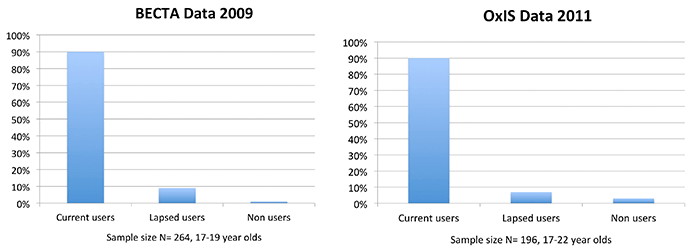
Professor Rebecca Eynon
Professor of Education, the Internet and Society
Rebecca Eynon's research focuses on learning and the Internet, and the links between digital and social exclusion.

In recent years, there has been an increasing interest in the ways that young people are using the Internet and other new technologies. The use of the Internet can lead to many potential individual and societal benefits, including improving access to services and support, learning opportunities, and increasing possibilities to participate in society. However, there is significant diversity in the ways that young people access and use the Internet and these differences, specifically, the extent to which individuals are digitally included or excluded, has attracted a great deal of attention from policy makers, practitioners and academics.
In 2009, a nationally representative survey conducted as part of the Learner in their Context Study identified that around 10% of 17-19 year olds in Britain are lapsed Internet users, that is, young people who used to use the Internet but no longer do. This group of lapsed users are fascinating. Why do these young people stop using the Internet given its prevalence and value in the lives of the majority of young people? Furthermore, what can this group tell us about the relative successes and failures of the current digital inclusion strategy in Britain?
Through interviews with individuals identified as “lapsed Internet users” this research will aim:

Eynon, R. and Geniets, A. (2012) On the Periphery? Understanding Low and Discontinued Internet Use Amongst Young People in Britain [900 KB]. Report for the Nominet Trust.
This research has been supported by the Nominet Trust (October 2011-August 2012).

Professor of Education, the Internet and Society
Rebecca Eynon's research focuses on learning and the Internet, and the links between digital and social exclusion.

Dr Anne Geniets was a research associate at the Reuters Institute for the Study of Journalism, University of Oxford.